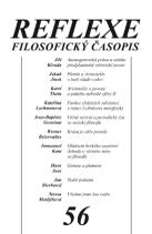The Strangeness of Socrates
The article explores some aspects of the strangeness of Socrates, and in doing to some of the concerns underlying Plato’s work. It presents Socrates as a threat to a good and fulfilled human life as we ordinarily understand it, by ignoring both its proper aspirations and its proper limitations. Though the two are connected, the discussion concentrates on the latter. It does so by placing Socrates on trial for the crime of hybris, with respect to both the divine and the human. The charges are examined in the context of the Symposium, and hence in terms of love. Socrates is charged with inappropriate love: with loving, rather than fearing gods, and with not loving and thus disrespecting men. Though the article examines the case as presented by the prosecution (Aristophanes and Alcibiades), it intimates the form that the defence would take, namely that, internal to love is that it is of the ,good’ rather than of what is ,ours‘; and that, so understood, love is not the pursuit of what one wants, but obedience to a claim.
Backlinks: Reflexe 21
